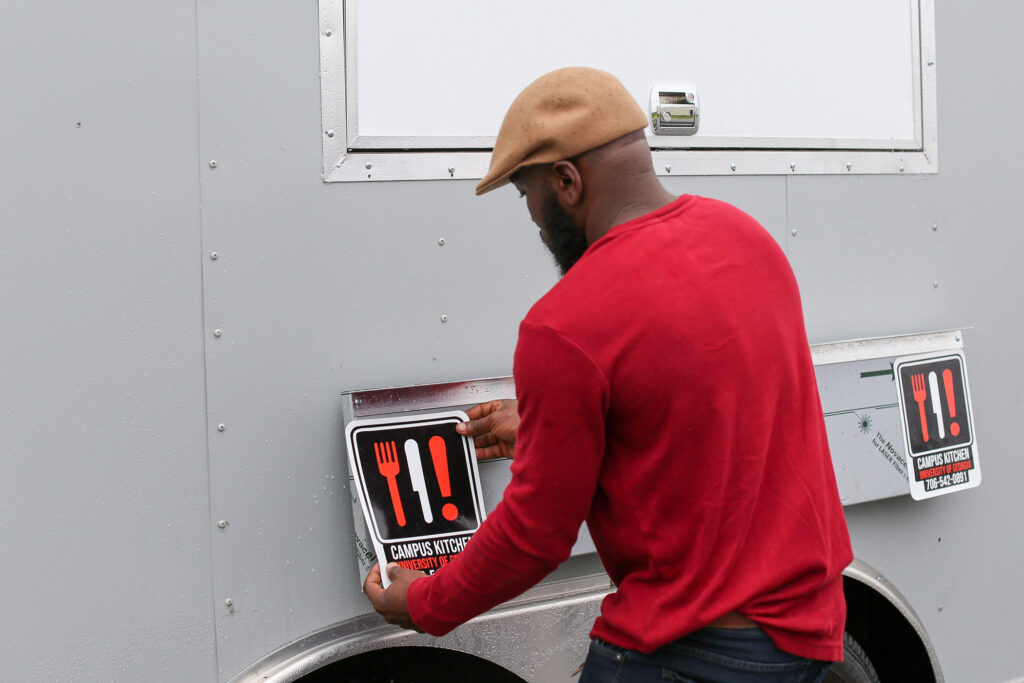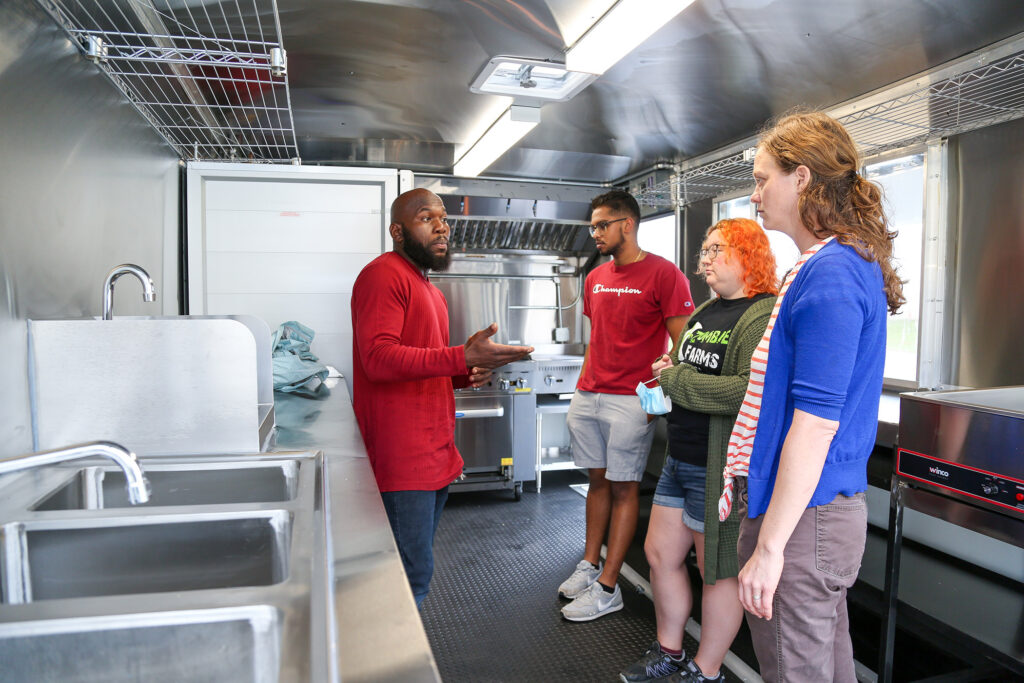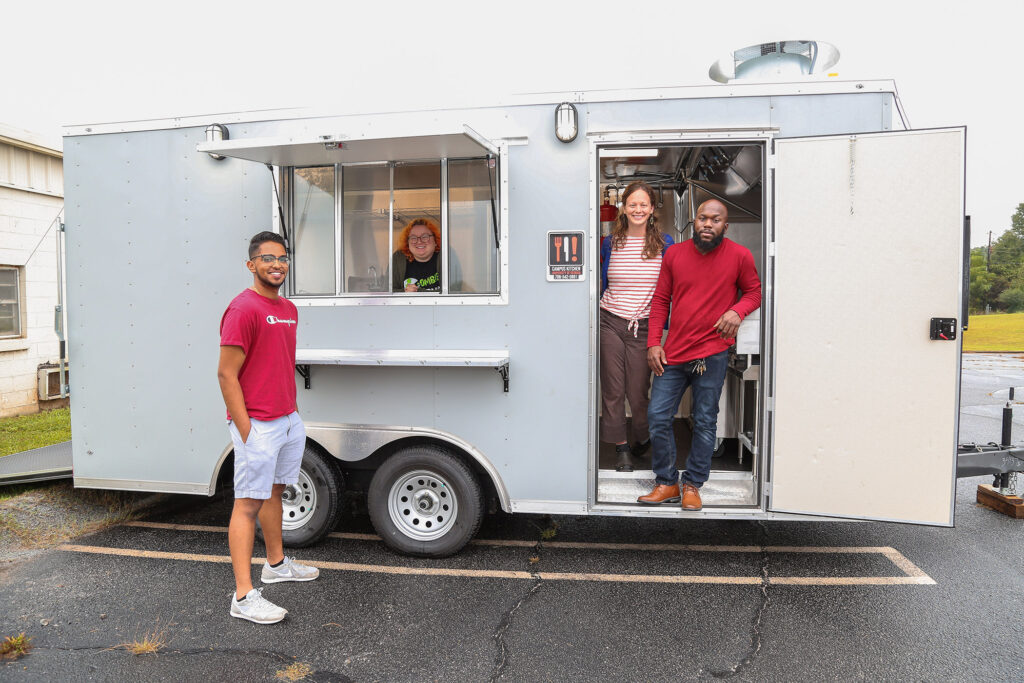More food insecure Athens-area residents will now be served by the University of Georgia’s Campus Kitchen program, thanks to its new mobile food trailer, which was purchased with grant money from the University of Georgia Parents Leadership Council and funds raised by the UGA Young Alumni network.
The trailer, which will be housed at the UGArden student farm on South Milledge Avenue, functions like a traditional food truck but can be towed behind regular vehicles and doesn’t require a special license to drive. The 126 square feet of mobile cooking space will allow the student-run Campus Kitchen, a program operated through the UGA Office of Service-Learning, to provide more food options to hard-to-reach populations.

Athenian Taurine (Maxim) Watkins owns Food Truck Builders A to Z, “The Munchies” food truck, and built the Campus Kitchen food truck. (Submitted photo)
“The idea is to better serve the community and meet people where they are with hot meals, specifically folks who are experiencing homelessness,” said Andie Bisceglia, Campus Kitchen coordinator.
Constructed by Athens-area food truck operator and builder Max Watkins, the Campus Kitchen food trailer was made possible thanks primarily to a $38,270 grant from the UGA Parents Leadership Council. A longtime supporter of the Office of Service-Learning, a unit of Public Service and Outreach, the council awards yearly grants to UGA organizations with “a clear commitment to enhancing the undergraduate student experience” and for programs that have “a direct and positive impact on student life at UGA.”

The new Campus Kitchen trailer houses a fully functional full-size kitchen complete with gas stove, sink, refrigerator and warming oven. (Submitted photo)
The remaining $4,730 needed for the project was raised by members of the UGA Young Alumni network.
“We’re so grateful to the Parents Leadership Council for this investment and also to the alumni network that provided additional funding,” said Shannon Brooks, director of the Office of Service-Learning. “I think it makes this project even more special that UGA alumni and parents are the ones funding it.”
The trailer will initially be used at the Advantage Homeless Day Service Center, where Campus Kitchen has been providing free meals on Thursdays for the past year. The meals are currently cooked at Covenant Presbyterian Church and transported in a cooler to the day center in downtown Athens. With the trailer, meals can be cooked on site, providing people with fresher food and, potentially, a limited menu of choices.
(Submitted photo)
The ability to cook, transport and serve meals from a single, mobile location will make Campus Kitchen more efficient and capable of helping more people, said Tru Patel, a senior health promotion major at UGA and student president of Campus Kitchen.
“One of the biggest problems we run into now is transporting the meals from where they’re cooked to where they need to go,” said Patel. “While transporting them, they can get messy and spill and not be the proper temperature. Having a cooking location on-site really eliminates all of those problems.”
The trailer will also be used for Campus Kitchen’s annual Turkeypalooza food drive. With the added cooking space the students hope to increase the number of Thanksgiving meals they deliver to older adult families and homebound individuals from 200 to 300.
In the future, the trailer could be made available to community partners to use while it’s parked at the UGArden. Input from the community and partner organizations will help determine future uses for the food trailer, as well.
The ultimate goal is to help raise awareness of the Campus Kitchen program in the community for those experiencing food insecurity.
“Campus Kitchen being a part of the entire Athens community is really a relationship that’s bridged between the residents and the university,” Patel said. “It shows the community that we’re here for them just like they’re here for us.”
